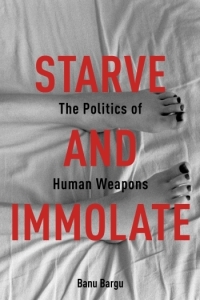Join John as he interviews Kyla Schuller (Women’s and Gender Studies, Rutgers) about her new book The Biopolitics of Feeling: Race, Sex, and Science in the Nineteenth Century (Duke UP, 2017). The book develops concepts of impressibility and sentimentalism in order to interrogate practices of race science, race-making, and sex differentiation in 19th century America (and beyond). The conversation opens with an exploration of sentimental biopower and race as a spatio-temporal formation assigning capacities for impressibility and species-progress, the relation of Frances Harper and W.E.B. Du Bois to discourses of heredity, eugenics, impressibility, and more. From there, we open out onto questions of the state, critiques of feminist new materialism, epigenetics, and above all the challenges and promises of biopolitical analysis.
Support us on Patreon to help us upgrade our recording equipment, potentially provide episode transcripts, and more – plus, you may have the chance to jump your request to the top of the request queue. Requests for texts for us to discuss? Dreams for us to interpret? Advice questions for us to answer? Email us at alwaysalreadypodcast AT gmail DOT com. Subscribe on iTunes. Follow us on Twitter. Like our Facebook page. RSS feed here.Thanks to Bad Infinity for the intro music, and always already thanks to B for the outro music. For the mp3 of the episode click here.
Links:
- Schuller’s website; The Biopolitics of Feeling at Duke University Press
- Schuller’s “The Trouble with White Women” essay, at Duke UP blog
- Schuller’s “Taxonomies of Feeling: The Epistemology of Sentimentalism in Late-Nineteenth-Century Racial and Sexual Science” in American Quarterly






